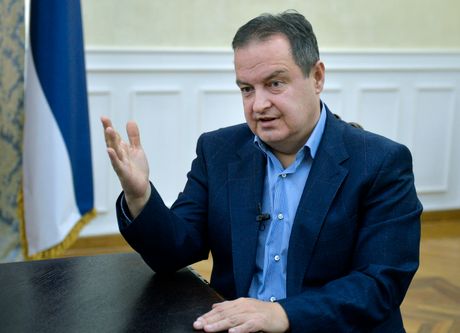Many Islamic State soldiers came from our region: Dacic on terrorism, Bosnia, Kosovo and Metohija

The Global Parliamentary Summit on Counter-Terrorism was held in Vienna, the first of its kind in partnership with the United Nations and the Inter-Parliamentary Union. The speaker of the Serbian parliament, Ivica Dacic, shared Serbian experiences in that area, especially in relation to extremist and religious circles in Bosnia and Herzegovina and Kosovo and Metohija.
Parliaments against terrorism, with advisory and informational assistance of specialized offices of the United Nations for the fight against crime and terrorism. That would be the gist of yesterday's summit, where the possibilities of national and international law were combined for a more peaceful world.
"I would say that they do not have enough understanding for some suggestions and proposals coming from us, that are well-intentioned in nature. They are sometimes not taken seriously among Western partners. I’m not sure they took me seriously. We also provided US partners with lists of all those Islamic terrorists who fought in our region during the wars of the 1990s. Many of them later received citizenship of those countries, Bosnia and Herzegovina and Albania, some found refuge in Kosovo. A large number of Islamic State soldiers came from our region," Dacic told RTS.
The Executive Director of the United Nations Office on Drugs and Crime, Egyptian Ghada Fathi Waly, pointed out that organized crime is the bank of international terrorists. Russian Vladimir Voronkov, undersecretary for UN Secretary-General Antonio Guterres for the fight against terrorism, demanded that efforts be tripled so that no country would be a shelter for terrorists anymore.
This gathering shows the controversial nature of the response to modern terrorism. What can parliaments do through legislation? Whose national data is trusted? Where are geostrategic priorities of what is reliable and convincing determined? What does the United Nations, especially when it comes to specialized offices, dare and want to do?
In each of the answers, one thing remains certain - modern terrorism has the face of Islamic fundamentalism.
(Telegraf.rs)
Video: Potraga za ribolovcima u jezeru kod Leskovca
Telegraf.rs zadržava sva prava nad sadržajem. Za preuzimanje sadržaja pogledajte uputstva na stranici Uslovi korišćenja.

